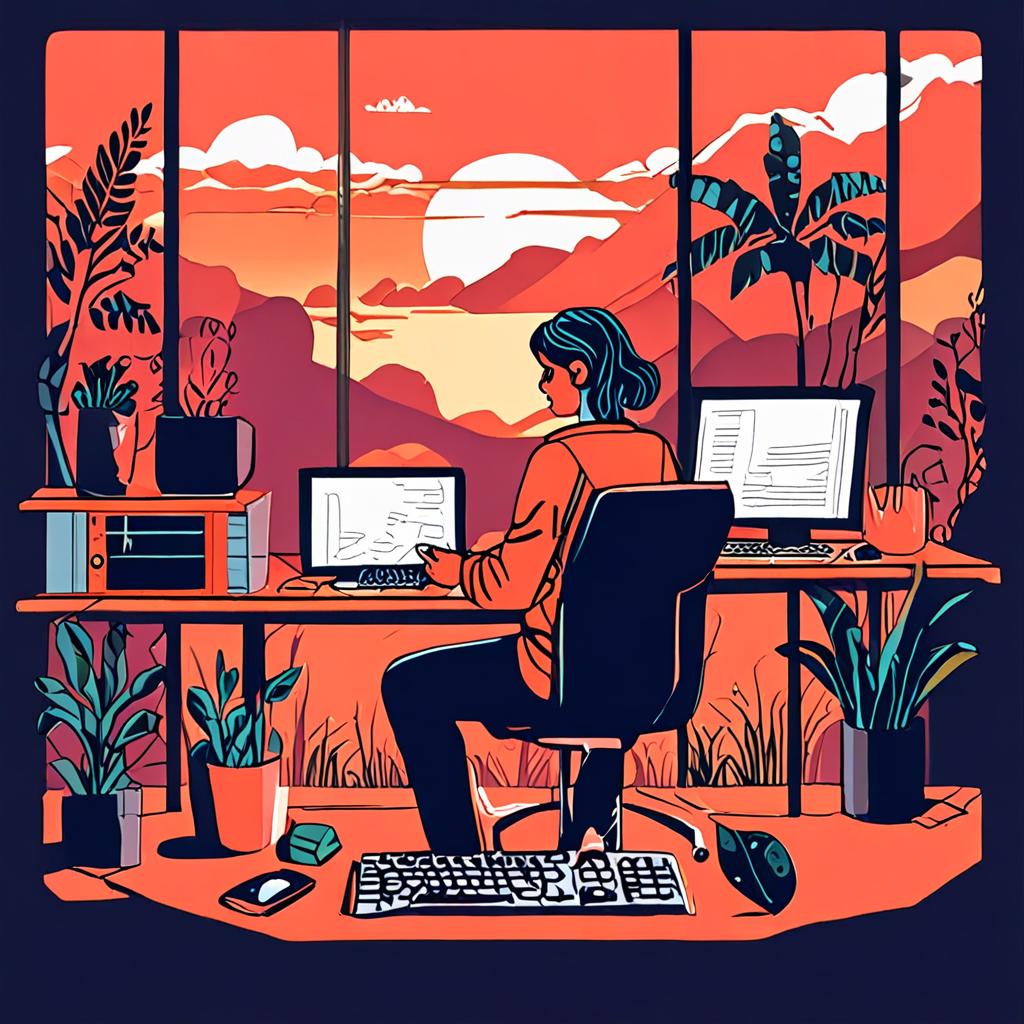Introduction
The shift to remote work has brought numerous benefits, including increased flexibility and productivity. However, it also poses significant challenges to mental health and self-care. Without a structured office environment, remote workers often struggle to separate work and personal life, leading to burnout, isolation, and decreased motivation. In fact, a Gallup survey found that 43% of employed adults in the United States are working remotely at least some of the time, and this shift has led to a significant increase in reported feelings of loneliness and disconnection.
Traditional self-care methods, such as meditation and exercise, are often ineffective in addressing the unique challenges of remote work. For example, a study by Buffer found that 21% of remote workers struggle with work-life balance, and 18% struggle with loneliness, despite having access to traditional self-care resources.
Artificial intelligence (AI) offers a unique solution to these challenges. By leveraging AI-powered tools and techniques, remote workers can optimize their self-care routines, streamline their workflows, and cultivate a healthier work-life balance. In this article, we’ll explore 10 essential self-care hacks for remote workers, backed by real-world examples and data analysis. From AI-driven stress management to personalized productivity coaching, we’ll examine the cutting-edge strategies that are
Setting Boundaries in a Blurred Workspace: Strategies for Separating Work and Personal Life
As remote work becomes the new norm, the lines between work and personal life often blur, leading to burnout and decreased productivity. Establishing clear boundaries is crucial for maintaining a healthy work-life balance.
According to a Gallup survey, 43% of employed adults in the United States are working remotely at least some of the time, and this number is expected to continue growing. However, this shift has also led to an increase in work-related stress and decreased personal time.
One effective strategy for setting boundaries is to create a dedicated workspace that is free from personal distractions. This can be achieved by designating a specific room or area for work and using tools like website blockers or apps that track work hours.
AI-powered tools can also help remote workers set boundaries by providing features such as:
- Automated time tracking and reporting
- Personalized productivity recommendations
- Virtual “do not disturb” modes
By leveraging these tools and strategies, remote workers can establish clear boundaries between their work and personal life, leading to improved mental health, increased productivity, and a better overall quality of life.
Navigating Digital Distractions: Techniques for Minimizing Procrastination and Staying Focused
As remote workers, we’re constantly surrounded by digital distractions that can hinder our productivity and negatively impact our mental health. The constant ping of notifications, the temptation of social media, and the endless scroll of email can be overwhelming. According to a study by RescueTime, the average remote worker spends around 2 hours and 53 minutes per day on distracting activities.
To combat this, it’s essential to develop strategies for minimizing procrastination and staying focused. One effective technique is the Pomodoro Technique, which involves working in focused 25-minute increments, followed by a 5-minute break. This technique has been shown to improve productivity by up to 28% (Source: Pomofocus).
AI-powered tools can also help remote workers stay on track. For example, website blockers like Freedom or StayFocusd use AI to identify and block distracting websites, while apps like Focus@Will use AI-generated background music to help users concentrate. By leveraging these tools and techniques, remote workers can reduce digital distractions, boost productivity, and improve their overall mental well-being.
Prioritizing Mindful Moments: Self-Care Routines for Managing Remote Work Stress and Burnout
As remote work becomes the new norm, it’s essential to acknowledge the blurred lines between work and personal life. Without a structured schedule, remote workers can easily fall prey to burnout and stress. Prioritizing mindful moments through self-care routines can help mitigate these risks.
A study by Gallup found that employees who spent 60% to 80% of their workweek working remotely had the highest levels of engagement, compared to those who worked entirely from home or in the office. However, this flexibility can also lead to an always-on mentality, exacerbating stress and burnout.
AI-driven tools can help remote workers prioritize self-care by:
- Scheduling mindfulness breaks and meditation sessions
- Analyzing work patterns to identify burnout risk factors
- Providing personalized self-care recommendations based on individual needs
For instance, apps like Headspace and Calm use AI to offer customized meditation sessions, helping remote workers reduce stress and increase focus. By incorporating these mindful moments into their daily routine, remote workers can improve their mental health and maintain a healthier work-life balance. By doing so, they can boost productivity, creativity, and overall well-being.
Conclusion
The integration of AI in remote work self-care has revolutionized the way professionals prioritize their mental health and digital wellness. By leveraging AI-powered tools and strategies, remote workers can optimize their work-from-home productivity, streamline self-care routines, and cultivate a healthier work-life balance.
As you reflect on the 10 essential self-care hacks outlined in this article, consider the following next steps to enhance your remote work experience:
- Experiment with AI-driven time management tools that help you prioritize tasks, set realistic goals, and minimize digital distractions. By automating routine tasks and optimizing your schedule, you can free up mental energy for more creative and high-priority tasks.
- Adopt a digital wellness routine that incorporates AI-powered meditation apps, mood-tracking software, or virtual fitness classes. By harnessing the power of AI in your self-care routine, you can better monitor your mental health, identify areas for improvement, and make data-driven decisions to support your overall well-being.
